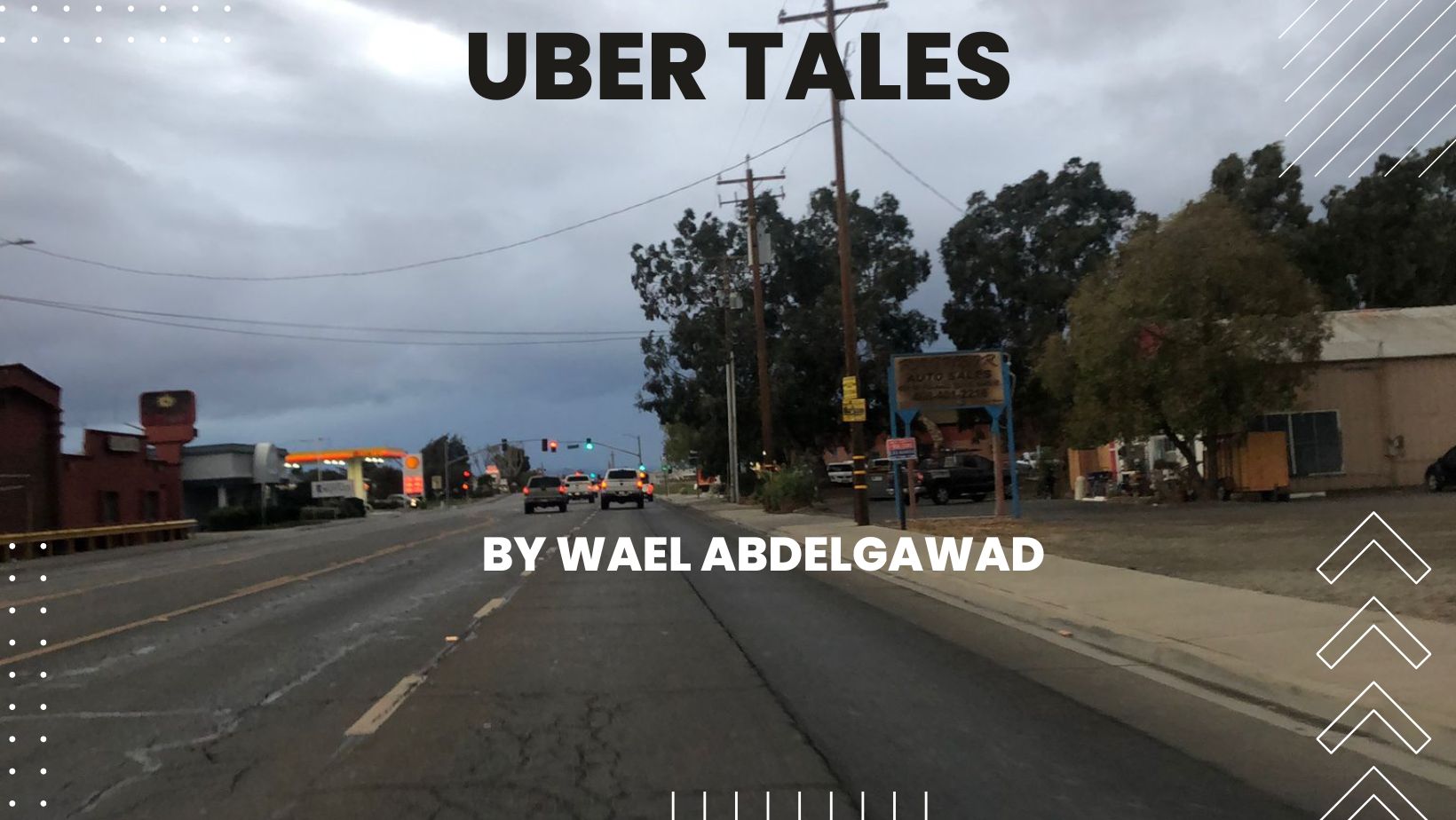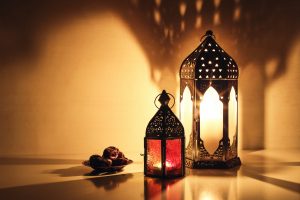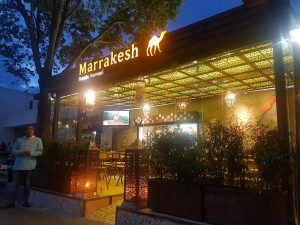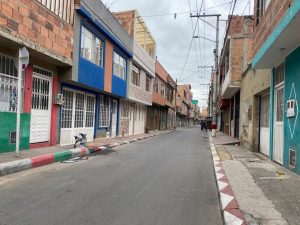#Life
Uber Tales #8 – The Ramadan (In Colombia) Edition
In this edition: Struggling to complete the paperwork needed to get married in Colombia; I nearly lose my temper with a driver; and praying with a stranger.
Published

is In this edition: Struggling to complete the paperwork needed to get married in Colombia; I nearly lose my temper with a driver; and praying with a stranger.
(These Uber Tales (and Lyft too) are true. I have changed the names, and sometimes I combine stories from different days into a single, more cohesive narrative. However, aside from that, these events are all accurate; word-for-word, just as I have experienced them)
Previously: Uber Tales 1 | 2 | 3 | 4 | 5 | 6 | 7
Keep supporting MuslimMatters for the sake of Allah
Alhamdulillah, we're at over 850 supporters. Help us get to 900 supporters this month. All it takes is a small gift from a reader like you to keep us going, for just $2 / month.
The Prophet (SAW) has taught us the best of deeds are those that done consistently, even if they are small. Click here to support MuslimMatters with a monthly donation of $2 per month. Set it and collect blessings from Allah (swt) for the khayr you're supporting without thinking about it.
Thursday, March 30, 2023
Getting Married (Again!)

If I were Catholic I could just have a church wedding and take the church license to the government notary, and they would give me a marriage certificate. But that doesn’t exist for Muslims. Colombia does not make it easy for non-Catholics to get married.
It’s Ramadan, and Yajaira (my wife) and I are both fasting. All the documents we brought are being translated into Spanish and notarized (again), and we need to go pick them up.
Race Car Driver and Mood Swings
We order a ride with Cabify (Uber is rare here) and head north. It’s a long ride that takes us up into the foothills of Bogota, where we can see the entire city spread out beneath us.
The driver is speeding as if trying to win the Monaco Grand Prix. I hold onto the ceiling strap as he careens through the turns. I’m thinking of my daughter, who is back home with my mom. She’s 16 and can sometimes be uncommunicative when I’m traveling. It’s a constant worry. I mean, I know she is well, but I miss her. I make dua’ for her every day.
A sudden turn sends me crashing into the door. SubhanAllah! This driver is pressing the gas like the car is about to grow wings and fly. At one point he almost runs into another car, then five seconds later comes very close to striking a motorcycle carrying two passengers. Finally, I am out of patience. In fact, I am enraged. There is a plastic barrier between the backseat and the driver. I want to take out my pocket knife, slash the barrier, and choke the driver from behind.
Am I the only one who sometimes experiences these extremes of emotion in Ramadan? This is a huge part of the challenge. We don’t only fast from food and drink, but from anger, envy, jealousy, resentment, grudges, gossip, rudeness, and spite. Allah 

Ramadan, O Ramadan! How you teach us, mold us, and transform us into better human beings! If we are not emerging from Ramadan as better people than when we entered, we are doing something wrong. As the Prophet 
“There has come to you Ramadan, a blessed month, which Allah, the Mighty and Sublime, has enjoined you to fast. In it the gates of heavens are opened and the gates of Hell are closed, and every devil is chained up. In it Allah has a night which is better than a thousand months; whoever is deprived of its goodness is indeed deprived.”
So instead of choking the driver I just say, “Sir, slow down please. I’ll tip you if you go slower.”
“Okay, no problem,” he says. “Most people are in a hurry.”
High Tech Security
Bogota can be a dangerous city, and the building where the translator is located is incredibly secure. You give the lobby receptionist your ID, and she gives you an electronic key to enter through a gate. You swipe the key to call the elevator. When you get in the elevator there are no buttons. The key tells the elevator where to go. You cannot go to any floor except the one programmed into the key.
The translated documents are beautiful. Absolutely perfect. They have matched even the design and format of the originals.
It’s almost time for Maghreb. Looking at Google Maps we see a Moroccan restaurant nearby. We hail a taxi. The driver is an old man who doesn’t know the way. Yajaira tries to tell him but he doesn’t listen. At one point we come face to face with an SUV in a narrow alley. We back up rapidly, the driver looking only in the mirror, and I’m convinced we’re going to crash into something, but we don’t.
Refugees
In front of the restaurant, a man with a small daughter approaches me. “Please,” he says in Spanish. “I’m not a beggar. I just need money for milk. We are refugees from Venezuela, my wife has a small baby, and we need milk.”
“I gave you money three days ago,” I tell him.
He starts to deny this, but I say, “Yes. All the way across town in front of the Tequendama Hotel.” Which is true. I gave him 20,000 pesos, and then he asked me for 50,000 and I refused.
His patter falters. “Oh, the Tequendama… Well, can you give me again?”
“Not today.”
He walks away, and his little girl gives me a melancholy wave. I don’t know if the man’s story is true, or if he is a professional beggar. Maybe both. Regardless, I feel deeply sad for the girl, who should be at home playing, or in school.
Marrakesh Comida Marroquí

After prayer, we shake hands and smile, and I go back to eating.
This instant friendship is something I have always loved about Islam. What other religion, what philosophy, has succeeded in making men and women of different tribes and races into brothers and sisters? It is truly one of the greatest miracles of Islam, going all the way back to Abu Dharr begging Bilal (may Allah be pleased with them both) to step on his cheek due to his deep remorse at having insulted him racially; or the way Islam ended the perpetual feud between the Aws and Khazraj; or to the brotherhood between the Muhajireen and Ansar.
Not to say that our brotherhood is perfect. We’re a million miles from perfect. Muslims make war on each other, bomb and starve each other, turn a blind eye to the suffering of their brethren in other nations, and even make strategic pacts with the oppressors.
But those injustices happen at the governmental level. They are acts of greed perpetrated by kings and military dictators. At the grassroots level – the restaurant owner, taxi driver, barber, teacher, farmer – the essential faith and love for Islam, and for the ummah as a whole, persists. There is a sheen of imaan upon our ummah, and given the slightest chance, the tiniest patch of fertile soil in which to grow, it settles upon the people and bears beautiful fruit.
Ikhlaas
The next day is Jumu’ah. I take a taxi to Masjid Abu Bakr. The driver asks many questions about me. I tell him that I am an Egyptian-American married to a Colombian woman. He says, “You gringos come here and marry our women. A gringo from America recently strangled his Colombian girlfriend. He stuffed her body in a blue suitcase and left it in a dumpster near the airport, and tried to flee. What do you think about that?”
“I’m not going to do that,” I reply. “My suitcase isn’t big enough.”
At Jumu’ah the Egyptian imam speaks at length in Arabic about the importance of ikhlaas, then a translator summarizes in Spanish. After prayer, I see brother Muhammad, who was the translator at my Islamic wedding back in December. He embraces me and seems happy to see me.
His life has fallen apart. He is an Egyptian who came to Colombia last year to marry a Colombian woman. He lived in her apartment and worked in her travel agency. But he found her to be intolerant of his religion, and in the end, he left her to practice his faith in peace, he says. He now cleans the masjid in exchange for living there. He has no car and few possessions. His body is lean, and his cheeks are hollow. His beard grows wildly in every direction.
We talk for five minutes, then Muhammad tells me that it was good to see me, and turns away. He sits and begins to read Quran. I have the sudden sensation that I am not quite real to him. His life has become the masjid. These carpets, domed ceiling, mimbar, books. Everything from outside is an illusion, like characters in a play. I wanted to invite him to dinner, but I find myself speechless, so I leave him to his reading.
Notary Public
Early Monday morning we take a taxi to a notary public deep in the southern ghettos of Bogota. A district called Bosa. We chose this area on purpose. I have a friend named Karim who always says, “Anytime you need to get something approved officially, take it to the ghetto.” Folks in the ghetto understand what it’s like to try to pass a smog inspection in an old clunker, for example, or to pass a building inspection in a little restaurant built in the 1960s. They’ll give you breaks and help you get it done.
Along the way the young taxi driver talks to his girlfriend on his Bluetooth:
“I can’t believe I’m going to Bosa… Yes baby, I’ll be careful.”
I have the window halfway open, letting in the fresh morning air as I work on my phone, doing some edits to All That Is In The Heavens, and making notes for future chapters. Yajaira keeps glancing at me worriedly. “Mi amor,” she starts to say.
“I know. You want me to close the window.” She is worried that someone will drive by on a motorcycle, reach through the window and snatch my phone. This happens in Bogota.
We arrive in the low-slung ghetto that is Bosa. To make a long story short, after no less than four hours at a two-story notary building with peeling paint and steel doors, filled with petitioners, going from one window to another, paying a variety of fees, we experience some success. They approve our documents and give us a date for the civil wedding ceremony. I hoped it would be within the next week, while I am still here. What kind of fool am I? The date is June 17th. But alhamdulillah for everything.
We go shopping, and return home just in time to pray, shower, and prepare for iftar. I am exhausted, barely able to keep my eyes open. I’m mostly a night worker, and I have the greatest respect for those brothers and sisters who work a full day shift during Ramadan. May Allah 
I’ll let you know what happens in June, inshaAllah.
***
Uber Tales appears periodically.
Reader comments and constructive criticism are important to me, so please comment!
See the Story Index for Wael Abdelgawad’s fiction stories on this website.
Wael Abdelgawad’s novels – including Pieces of a Dream, The Repeaters and Zaid Karim Private Investigator – are available in ebook and print form on his author page at Amazon.com.
Keep supporting MuslimMatters for the sake of Allah
Alhamdulillah, we're at over 850 supporters. Help us get to 900 supporters this month. All it takes is a small gift from a reader like you to keep us going, for just $2 / month.
The Prophet (SAW) has taught us the best of deeds are those that done consistently, even if they are small. Click here to support MuslimMatters with a monthly donation of $2 per month. Set it and collect blessings from Allah (swt) for the khayr you're supporting without thinking about it.
Wael Abdelgawad's novels can be purchased at his author page at Amazon.com: Wael is an Egyptian-American living in California. He is the founder of several Islamic websites, including, Zawaj.com, IslamicAnswers.com and IslamicSunrays.com. He teaches martial arts, and loves Islamic books, science fiction, and ice cream. Learn more about him at WaelAbdelgawad.com. For a guide to all of Wael's online stories in chronological order, check out this handy Story Index.


Moonshot [Part 11] – The Fig Factory

Nationalism And Its Kurdish Discontents [Part II of II]: Kurds And Turkiye After Ottoman Rule

Nationalism And Its Kurdish Discontents [Part I of II]: Kurds In An Ottoman Dusk

Moonshot [Part 10] – The Marco Polo

Moonshot [Part 9] – A Religion For Real Life

Moonshot [Part 11] – The Fig Factory

Moonshot [Part 10] – The Marco Polo

Moonshot [Part 9] – A Religion For Real Life

Moonshot [Part 8] – The Namer’s House

[Podcast] A Riba-Free Future With A Continuous Charity | Faizan Syed

[Dhul Hijjah Series] Calling Upon the Divine: The Art of Du’a (Part 1)

IOK Ramadan 2025: Four Steps | Sh Zaid Khan

IOK Ramadan 2025: Do Your Best | Sh Zaid Khan

IOK Ramadan 2025: Giving Preference to Others | Sh Zaid Khan




Abu taalib
April 8, 2023 at 4:34 AM
Alhamdulilaah been waiting for you to post something brother, your one of the regular writers here and it was unusual to see other people now posting and you not. Glad things are moving forward in your life. Ramadaan is full of barakah. Inshallah looking forward to your next post…would be interesting to see Ramadaan in All that is in the heavens…
Shoaib
April 9, 2023 at 5:05 PM
Thank you for this insider’s perspective on what life is like in a part of the world I know very little about. May Allah facilitate you through all the administrative hurdles quickly and grant you all a long happy and blessed life together
Abdullah Salman
April 12, 2023 at 4:06 PM
I have a question. Since day of the dogs takes place in the same universe as Zaid Karim and the characters in day of the dogs age and become adults, how old would zaid karim and his family be when Omar grows into an adult. Just curious
Wael Abdelgawad
April 12, 2023 at 7:09 PM
The events at the beginning of Day of the Dogs take place about a year after Zaid Karim’s search for the girl. So yes, by the end of he Day of the Dogs, Zaid would be in his 50’s or so. Interesting thought.